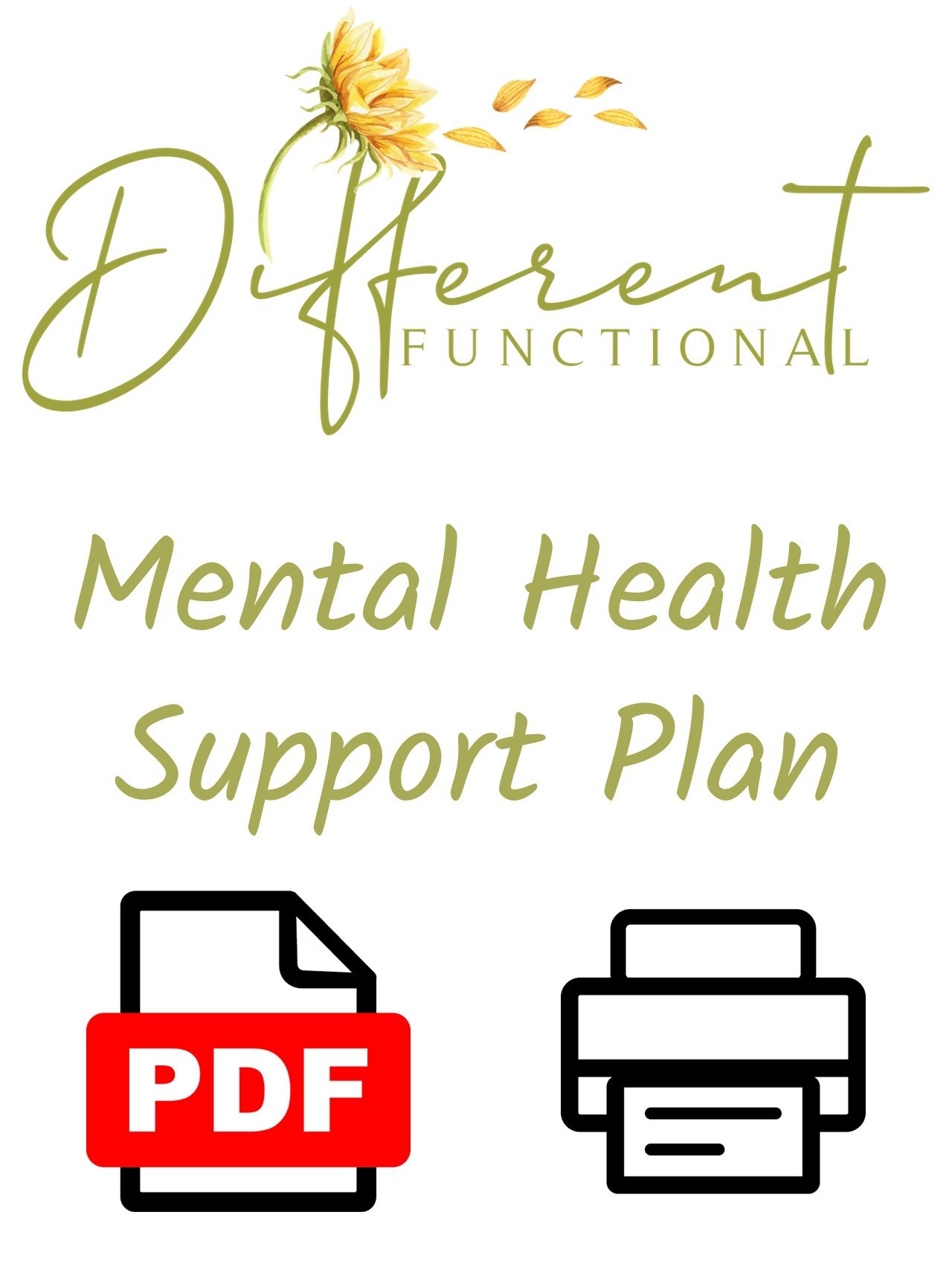
Different-Functional, where different does not mean defective.
WE NOW HAVE MERCH!!!
-T-SHIRTS -TANK TOPS -HOODIES -STICKERS -MUGS -PHONE CASES -LAPTOP CASES -PILLOWS -MAGNETS -PINS -TOTES -NOTEBOOKS
CHECK US OUT ON TEEPUBLIC!!!
Optimism simply doesn’t work for everybody. Some of us actively find hope in pessimism. We manage our anxieties and counter our depression through negative attitudes. Take away our negative outlooks, and we end up drowning in doubt and fear.
I know this sounds contradictory, but there is even a name for this concept: defensive pessimism
I believe that if we have this seed inside of us, then hope still has a chance. Because everything else on that checklist, in my opinion, can be learned. Goal-directed behavior, social skills necessary to form supportive relationships, a belief in yourself and your abilities, even the will to live are all learnable behaviors. Trauma did not kill hope. It merely made it more difficult for it to grow.
How can you ask someone else to treat you kindly, when you cannot even be kind to yourself? How can you demand to not be invalidated, when you don’t have enough faith in yourself to even know if you are valid? How can you request the world change its behaviors to ensure your safety when you are unwilling to allow yourself safety?
Whether we like it or not, negativity bias does serve a purpose. It can help us assess and deal with real threats in our life. Getting rid of negative awareness completely can lead to reckless behaviors and disastrous consequences. As we know, though, focusing only on the negative can do the same.
Emotions can be complex and complicated. Identifying them, expressing them, communicating them, heck even feeling them can be a struggle. This printable worksheet can help! It provides the basic template we used in Episode 41 Feeling Your Feelings: An Intimate Exploration of Emotions to hep you define, identify, and express your emotions.
We all have irrational thoughts that, if left unchecked, can damage our mental health. This worksheet helps you identify a few of the most common cognitive distortions that can underlie irrational thoughts. It also guides you through the process of identifying these distortions in your own thinking and reframing them to lessen their harmful impact.

Unmasking can be difficult, especially if we believe that our true selves are broken or disfigured. But maybe the behaviors we are hiding aren’t simply “symptoms” of an illness, but rather specialized skills. This game provides a fun take on that concept. It’s a way to get us thinking about how we can use our common neurodivergent “symptoms” (aka superpowers) to our advantage in everyday interactions.
Instead of hiding behind the normalcy of our Alter Ego, let’s don our Cape of Difference and learn to wield our powers!
Discussing your triggers and mental health needs with your partner can be difficult. This easy-to-use worksheet can act as a guide to help you talk with your partner and develop an action plan.
Sometimes hope can be hard to find. You can feel lost in the darkness, making it difficult to find happiness, peace, or even a reason to keep going. How can you move toward the light when you can’t even see it?
This journal can help. It's not going to tell you to look on the bright side. Or hand you a bunch of prompts that force you to explore what you are thankful for. It won't even assign daily mindfulness minutes. Instead, it will simply guide you to hunt for and discover the tiny sparkles of light that are already present and abundant in your life.
This journal will help you remember that hope isn’t always about happiness and joy. Sometimes it is about curiosity and contentment. Sometimes it’s about safety and purpose. Most of all it is about finding a reason to keep moving forward.
In episode 3, Ivy & Autumn discussed the importance of and how-tos of Mental Health Check-Ins. This graphic can be used as a quick and easy reminder for performing regular check-ins. To get all the details on the process, check out episode 3!
In episode 25 of the Different Functional Podcast, Ivy & Autumn discussed the Basics of Boundary Setting. This handout gives some example phrases to help you start your boundary-setting journey. And a quick reminder of the 5 steps of Boundary Setting. Listen to the episode to get the full details!
Communicating support needs can feel overwhelming and complicated. Make the process easier with this simple, one-page form. The Mental Health Support Plan focuses on key information to help you identify what you (or a loved one) needs to feel supported. This form can be completed digitally or printed.
This journal is full of fun prompts to help you gain a better understanding of yourself. It encourages you to respond not only with words, but also with images and other media so that you can discover and meet the real you!
This digital download is intended to be printed and completed by hand. After purchasing, you will need to print the PDF to complete the journal.














Originally created to promote Episode 81 - “The Game of Love: Rants, Rambles, and Random Thoughts on Valentine’s Day”, we though these were just zany enough that someone might want them. If you are that someone, here they are, free for you to handout or hoard! All you need is some card stock, scissors, and a printer.